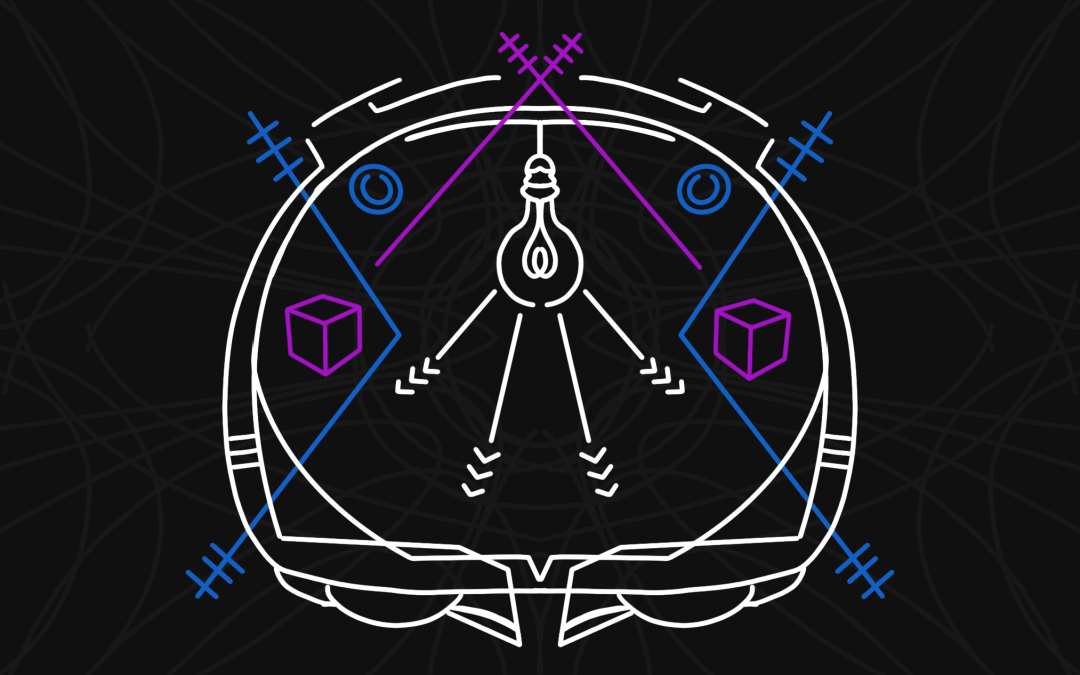It took me a long time to figure out that I was transgender and admit it was true.
But why did it take me so long? When you’re trans, you should just know, right?
Well, kind of. It’s complicated. I did know—but I didn’t know how to interpret what I knew.
I’ll do my best to explain.
My gender (or better put, lack of gender) has been the same as far back as I can remember. I’ve had an extremely consistent experience of genderlessness, and I can remember being confused by the female gender that was assigned to me as early as age four. But it was tricky work putting my finger on what exactly that understanding was, and how to describe it back to myself in words that made sense. (In this society we’ve only had the word for what I am, “agender,” for a few years.)
Like everyone, I go about my life experiencing things and interpreting what I’ve experienced. Some things, like how it hurts to touch a hot stove, are easy to interpret. When the stove is on, don’t touch it with bare skin, because it will burn you.
Other things aren’t so easy. When I entered society as a genderless mind with a body that was stamped “female,” I didn’t exactly come with a receipt. Something was always very off with the relationship between who I was and how I was required to behave and present myself (not to mention, how my body developed). But unlike the stove, it was very abstract and complex, and it took me a long time to figure out what was going on.
There were a bunch of ways I tried to interpret my experience before ever even dreaming of saying “I’m trans.” But they didn’t end up providing the real answer, so they didn’t hold up. I kept looking for the truth until I found it.
Here are some of the theories I considered before I finally figured it out.
1. I was socially inept
As a person who has never had a gender, I tell you what, it’s hard to even piece together what gender is, let alone recognize that almost everybody has it except for you.
For a long time, I interpreted the weird discomfort I always felt around people as though I was just socially incapable. Adults in my life certainly had a lot to say about how awkward I was, and my experience gave me no reason to doubt them. They seemed pretty unified in their assessments, and I sure felt like a weirdo.
Turns out, of course you’re going to feel uncomfortable around people if you’re interacting with them while stuck in a costume that completely distorts who you are. It’s just hard to know you’re in that costume if you don’t know it’s possible to take the darn thing off. I had no idea how much better I could feel if I was free to not be a girl—there was nothing to compare it to.
The incongruity between who I was and who I was labeled to be seemed like maybe it was a problem with my social graces.
2. Everyone was fake but me
Yes, my friends, I spent a good portion of my life seriously wondering if I was the only person on this planet who wasn’t full of shit. If you don’t have a gender, gender looks really weird. Especially with how cliquey it is, and how extreme people get with performing masculinity and femininity. For most of my life, it seemed like the fakest thing in the world. At times I thought of gender and fakeness as the same concept, or two sides of the same coin. Because coming from me, gender can only be fake.
So I didn’t think “hmm, I must not have this gender thing that everyone else seems to have.” I thought, “why is everyone acting so weird all the time? What sort of game are they playing? Can’t we just be real?”
I wasn’t completely wrong: gender policing is a huge thing, and a lot of people feel compelled to fake gendered behavior. But I’ve learned not to throw the baby out with the bathwater. I understand now that gender is real, even though I don’t relate to it, and I accept all you strange humans who have gender for the valid people that you are. 😉
3. I was a defunct girl
I theorized that maybe my lack of ability to click with the gender I was supposed to be was just a sign that I was a broken version of girl. The girl software just hadn’t installed correctly, and that was my bad somehow.
Hopefully it was a phase I would eventually grow out of. A phase that maybe everyone else just got through much quicker and easier than I did.
I wrote a whole post about this one, so I won’t get into it too deep here. The short story is, when I was a kid, I theorized that some people (like me) just felt blank about their gender until their hormones kicked in. And once mine did, maybe I’d stop feeling so weird about the idea of being a girl, and I would figure out how to become OK with it.
Joke’s on me—all I started to feel once hormones kicked in was even more freaked out about my mind being in the wrong body, and terrified that I was going to keep becoming even harder to recognize until I died.
4. I was sexist
Since I felt so uncomfortable expressing any kind of femininity, I wondered if I was sexist. I spent a lot of time in sexist environments—so maybe it was rubbing off on me. Why couldn’t I just accept the idea of being a woman? What was so bad about that? Did I just think women were a bad thing to be?
I did a lot of internal deep dives to try to root out any sexism in my system. I truly think women are incredible. But it never made me feel even a little bit OK with being called a woman, or trying to go about my life as though I was one.
Because I’m not one.
None of those were the answer
When I finally recognized myself in the word “agender,” and learned that that word falls under the category of “nonbinary,” which is a way to be transgender, I was both horrified and relieved. “Trans” has such a stigma (especially among the conservatives and Christians I’d spent most of my life around), and I knew I would lose friends and family once they knew. But it made sense of everything.
Recognizing that I was trans didn’t come out of any attempt to justify, analyze, or theorize.
It was simple: I just finally saw the truth.
Having the language to describe myself empowered me to describe that truth.
Being able to describe it changed my perspective.
It didn’t change how I think of myself anywhere near as much as it’s changed how I think of society. Instead of seeing society as the measuring system of my value, I realized that society only values what it already understands, and that it’s not a failure on my part if society doesn’t value or understand me. It’s just up to me to figure out how to exist and survive regardless.
I used to feel much more obligated to play along with society’s gender rules, because I thought that’s what was required of me to take up any space. But it’s become clear that those rules only exist to the extent that we follow them.
Lately, I pay less and less attention to them. Instead, I pay attention to things that matter much more to me. Things that actually contribute value to my life.
Like this gif, for example.

